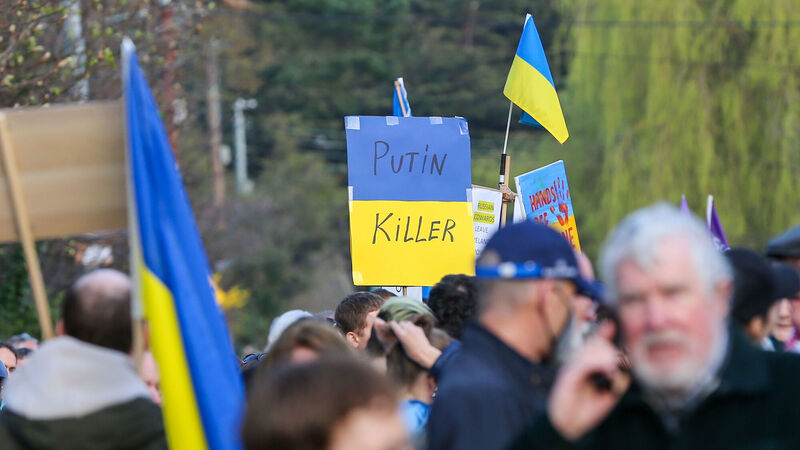Mick Clifford: Refugee supports highlight inequalities

Protesters gathered outside the Russian Embassy in Dublin to mark one month since the invasion of Ukraine. The embassy has become the focal point for Irish anger over the war raged by Vladimir Putin and the latest demonstration was organised by the Irish Congress of Trade Unions. Picture: Damien Storan/PA















